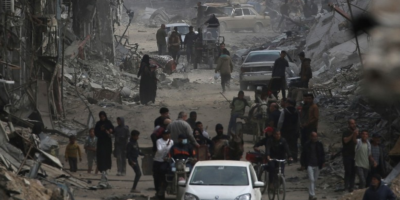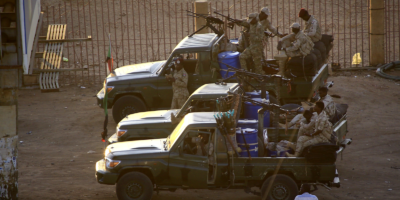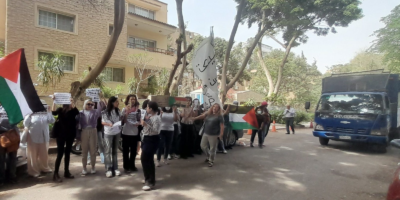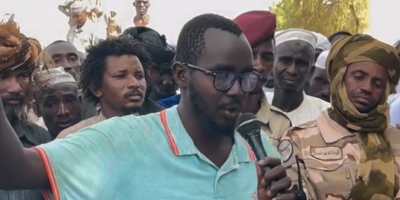News briefing
Edited by: Committee for Justice
Geneva: February 24, 2021
The Executive Director of Committee for Justice (CFJ), Ahmed Mefreh, spoke through a series of seminars organized by the Brookings Doha Institute and the Arab Reform Initiative, on the role of the diaspora in transitional justice in the Middle East and North Africa.
New tactics and mobility:
Mefreh said in his speech delivered online due to COVID precautionary measures, that the reason why he and other human rights defenders decided to pursue transitional justice and accountability from the diaspora is that there are better methods and opportunities to work abroad, and there is a possibility to work, there is a convenience to work, the ability to save and document information and data in a secure place outside the state borders far from the hands of the security authorities, and the ability to move and advocate for the cause to help the victims of injustice in Egypt.
“There is currently no way to practice transitional justice because it has not been implemented yet, we are still in the preparation stage, we try to work professionally and to take lessons and learn from different experiences, in order to reach the best methods and mechanisms that allow us to document and preserve violations so that we can open these files again at any stage of transitional justice which could one day serve as the foundation for a movement toward accountability in Egypt. The whole point is to learn from the past and prepare ourselves for the future,” Mefreh said.
Mefreh also pointed out that when we build partnerships regarding the issue of working on transitional justice, we look mainly at examples that are closest to the Egyptian case, as the Egyptian situation is closer to the case of military dictatorships in South America and Eastern Europe, and these are the models that we look at and draw inspiration from the experience that human rights defenders lived at the time, bearing in mind that we are working at the present time.
Difficulties facing defenders in the diaspora:
Regarding the difficulties facing the advocates of transitional justice in the diaspora, Mefreh started with difficulties on the personal level, explaining that life in the diaspora differs from life in the homeland. Human rights defenders go through tough experiences and challenges. He added that the other difficulty is the security situation inside the country, “because we are not separate from the situation inside Egypt, because the more severe the situation inside the country, the more it affects work abroad, for example, the more severe the repression, the more the teams are unable to move, and this of course affects the work in one way or another.”
“This is in addition to the revenge operations taken by the regime on the families and relatives of human rights defenders at home, and also by attacking the human rights defenders abroad in different countries by different methods such as blackmailing, and submitting security reports against them to the western countries they live in an attempt to reduce their movement within those countries.”
The impact of diaspora activities on the ground:
Regarding the impact of diaspora activities on the ground, the Executive Director of the CFJ said that had it not been for the presence of Egyptians abroad and effort of the diaspora community and the continuation of a few organizations inside the country to work, move and face security oppression, the Sisi regime would have become perceived as the best human rights system in the world. “We clarify the truth and convey the voice of the victims to all concerned parties that take it into account, especially independent human rights organizations. The human rights file is the only file in which the Egyptian regime is pressured by now,” he added.
Creating mechanisms to document violations:
Regarding the mechanisms used to document human rights violations in Egypt and used by CFJ, Mefreh explained that the challenge of defending rights in Egypt made it necessary to establish mechanisms to document and verify human rights violations.
“This is why CFJ established the Detention Watch Project, which examines violations inside prisons and the judicial system, as well as Trial Watch Project, which analyzes the various stages of the trial according to the available documents, with the aim of submitting periodic reports on the ongoing patterns of violations against the defendants, in order to contribute to the creation of a more just judicial system and a more humane penal system in Egypt,” he added
He continued: “Our latest report ‘The Giulio Regenis of Egypt Since 2013’ which tracks deaths inside Egyptian prisons, documented 1,058 death cases in detention centers in Egypt during the period from June 2013 to October 2020.”
Mefreh noted that CFJ also launched the Justice Watch Archive to document and verify human rights violations. Through it, CFJ seeks to enable human rights defenders in Egypt and the international community to directly access data, information, and documents so that they can best perform their assigned roles.





